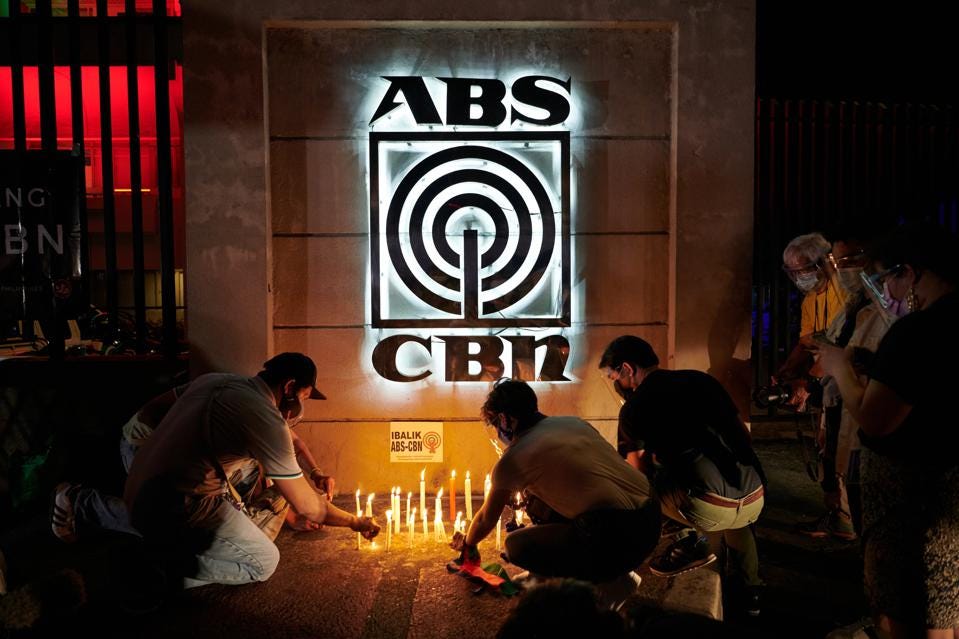It’s the comeback that no one thought possible — and yet, it’s finally here. After five long years of silence, ABS-CBN , the Philippines’ most iconic television network, is officially back on the air. The announcement, confirmed earlier this week, sent a wave of emotion across the country and around the world as Filipinos celebrated what many called a victory for free media, stability, and national identity.
For millions of Kapamilyas, this moment is more than the reopening of a TV network. It is the restoration of a home — a symbol of stories, voices, and dreams that have been silenced but not forgotten.
The Shutdown That Shook the Nation
In 2020, when ABS-CBN went off-air after being denied a franchise renewal, the nation was stunned. The sudden closure, which followed decades of broadcasting excellence, left a void in Filipino households. Families who grew up with “TV Patrol,” “It’s Showtime,” and beloved teleseryes found themselves without a familiar voice to shape their lives.
The shutdown sparked widespread anger and grief, with millions taking to social media to express support. Celebrities and journalists stood up, and hashtags like #IStandWithABSCBN trended for weeks. But despite the outpouring of love, the silence that followed was deafening.
Over the next five years, ABS-CBN reinvented itself. It transformed from a traditional broadcaster to a global digital media force — producing online shows, partnering with other networks, and reaching audiences through streaming platforms. However, the dream of returning to free TV remained alive.

The Road to Redemption
Sources close to the network revealed that behind the scenes, ABS-CBN has been fighting relentlessly. Legal teams have worked tirelessly, executives have rebuilt alliances, and employees — old and new — have continued to create content that reflects the Filipino spirit.
The change came in 2025, when Congress revisited the issue of renewing the media franchise amid growing public pressure for fairness and transparency. Lawmakers cited the important role of journalism, freedom of expression, and the network’s continued commitment to public service as reasons for the reconsideration.
When the approval was finally announced, the reaction was immediate. Kapamilya stars cried on live streams. Fans shared clips of old ABS-CBN logos and jingles. And on social media, one message resonated with everyone: “Welcome home, Kapamilya.”
The Emotion Behind the Return
The network’s comeback broadcast was a moment of pure emotion. Longtime anchors Karen Davila and Noli de Castro opened the special with trembling voices as they thanked the Filipino people for their unwavering faith.
Tears flowed freely as the first notes of the iconic “Kapamilya Forever” played. The network’s logo, once again shining on screens nationwide, symbolized not only resurrection — but redemption.
“ABS-CBN is more than a company,” said Cory Vidanes , COO of Broadcast. “It’s a family. And no matter how long we’ve been gone, the family has never stopped believing.”

A Network That Has Been Transformed
The new ABS-CBN isn’t just looking back — it’s looking forward. Its comeback lineup promises a mix of classic favorites and bold new programming designed to showcase modern Filipino values. The network also announced plans for an advanced digital integration, bridging traditional TV and online streaming to reach global audiences.
Industry insiders describe the move as “a rebirth, not a comeback.” The company’s renewed focus on transparency, community service, and mental health advocacy marks a profound shift in its mission.
The Kapamilya Spirit Lives On
The outpouring of emotion was overwhelming. From Baguio to Davao, people gathered in community centers and living rooms to witness the unfolding of history. Abroad, Overseas Filipino Workers (OFWs) watched the first broadcast on The Filipino Channel (TFC), many shedding tears.
Social media was flooded with messages of gratitude. “ABS-CBN raised us, inspired us, and stood with us in everything,” wrote one netizen. “Now, it’s our turn to stand with them.”
Even competing networks sent messages of congratulations, recognizing the return as a victory for the entire industry.
Beyond Broadcasting — A Symbol of Stability
Above all, the return of ABS-CBN represents the eternal resilience of the Filipino people. It proves that even when voices are silenced, the truth finds a way to speak again.
In an emotional statement, Chairman Mark Lopez said , “This moment belongs to every Filipino who refuses to give up hope. We return, not just to entertain, but to serve. Because being Kapamilya means standing together — in the dark and in the light.”
As the first full week of broadcast begins, one thing is certain: ABS-CBN’s return is not just a corporate success. It is a cultural homecoming — a celebration of faith, unity, and the indomitable spirit of the Filipino heart.
For many, this is not just television. It is a rebirth of history.